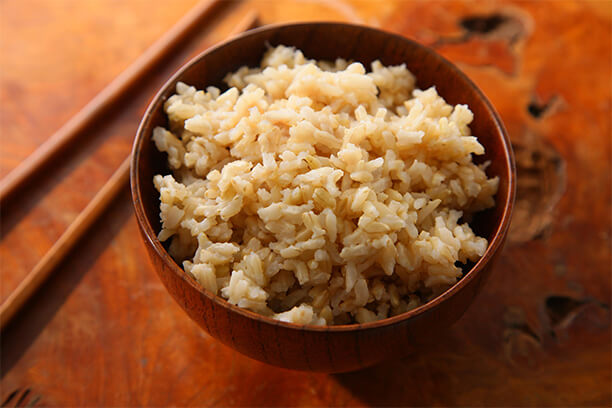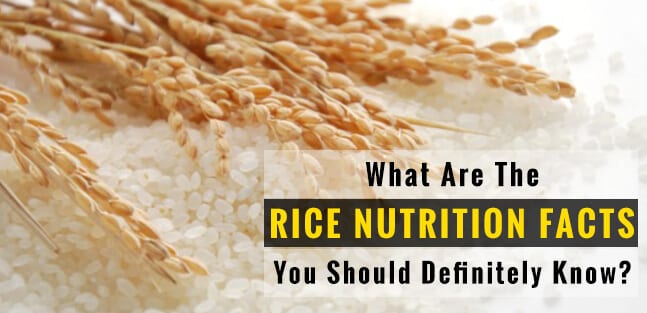Food & Nutrition, Health
What Are The Rice Nutrition Facts You Should Definitely Know?
Medically reviewed by Shanmukha Priya, M.Phil and Ph.D. in Food Science and Nutrition
Are you one of those Indians who cannot think about lunches and dinners without rice? Our Indian diets to a great extent are rice nutrition driven.
Table of content
- Brown Rice Vs White Rice
- Is Brown Rice good for you?
- Advantages of Brown rice
- Eat brown rice every day
- Is Basmati Rice good for you?
We tend to eat rice at least two times a day. Although the percentage of people eating rice or dependent on rice nutrition varies across the country, more or less it is a major part of our food habits.
But the sad part is, rice can be not that beneficial for your body. In fact the more you consume white rice, the less you are eligible for a healthy weight loss.
To find natural solutions to all your health issues and to know more about healthy diets, you can always drop by to any of the Possible Centres and ask our Nutrition experts themselves. All for FREE! Just click and get started!
FREE CONSULTATION with a Possible Nutritionist

To deal with this white rice problem, brown rice can be a saviour. Here are a few points that will enlighten you to the different aspects of rice nutrition, better.
Brown Rice Vs White Rice
Time and again you must be hearing about the war between Brown Rice and White Rice. If you go for rice nutrition values, brown rice is way better than white rice.
Brown rice after proper milling and polishing becomes white rice. And during this period of processing the brown rice, the rice nutrition value falls down greatly.
In fact, about 80% of vitamin B1, 67% of B3 and 90% of B6 are lost in the milling process of brown rice. White rice is also devoid of many minerals that are quintessential for us.
Thus we see, brown rice is the earlier and better version of white rice.
Is brown rice good for you?
Of course. If you are totally a rice person, the best thing that you can do for a better health is to replace the white rice with brown rice. And that itself can make a lot of changes.

Some of the health advantages of brown rice are:
- It is good for thyroid health. Brown rice contains selenium which is a mineral that is found to be very good for thyroid.
- Brown rice has about 50% more magnesium.
- It serves as a great source of manganese. This improves the nervous system.
- It has about six times higher fiber content than white rice. This helps in making you feel full for a longer period and in releasing the carbohydrates more gradually thereby, stabilizing the blood sugar levels and preventing diabetes.
- Brown rice has a lower Glycemic Index (GI) than white rice. GI measures how fast a food raises the blood glucose levels compared to the same amount of glucose. Brown rice has a GI of 50 while white rice has a GI of 70.
- Also for weight loss brown rice is always preferred.
Can you eat brown rice every day?
Although there are many benefits of brown rice over white rice, having brown rice every day isn’t advisable.
Instead, you can always replace the rice diet with healthier grains like quinoa, amaranth, oats etc.
And if you are struggling to replace rice from your diet entirely, here’s a quick video that will help you at least reduce the rice consumption.
Is Basmati rice good for you?
In the case of basmati rice too, there are brown basmati and white basmati. And like in general, the unpolished brown basmati is also better.
The brown rice version of basmati has about 20 % more fiber compared to many other types of brown rice.
For the people who love rice, it becomes really difficult to not have rice.
But if you are looking for managing weight or having a balanced diet, consumption of rice should be minimized.

There was strong scientific reason behind the way rice was cooked in earlier times by draining the starch water after cooking. The starch water thrown out used to take out the readily digestible starch (RDS – equivalent of sugar), which is chemically known as amylopectin. With change in lifestyle and looking for ease of cooking, ppl have mostly given up this traditional method of cooking and now consuming more sugar in rice.
Hi,
Yes, while trying to make life simpler, we have given up our traditional methods of cooking in order to save some time. However, we forget that the new methods may not be healthy at all. We are glad that you are aware of rice nutrition facts and trying to behold the old healthy method of cooking rice. For more articles on healthy diets and recipe, keep following our blogs and do keep writing to us.